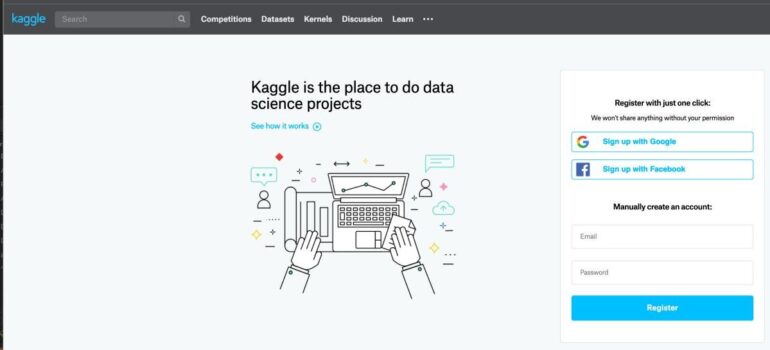TL;DR:
- Kaggle hosts a CTF competition by AI Village with $50,000 in prizes.
- 27 hand-crafted machine learning security challenges await participants.
- The contest aims to foster a hacker mindset and diversity in AI security.
- The self-paced event began on October 9 and ended on November 9.
- Prizes range from $8,000 to $12,000 for the top five winners.
- Last year’s challenges included dimensionality exploration, deepfakes, and password extraction.
- Market implications: Growing interest in AI security and skills development.
Main AI News:
In the realm of AI-driven cybersecurity, a remarkable event has commenced – the CTF competition orchestrated by the esteemed AI Village community, now underway on Kaggle. With a substantial prize pool totaling $50,000, this contest beckons hackers and enthusiasts to embark on a journey of machine learning security challenges.
Kaggle, renowned as the world’s largest community of data scientists, routinely orchestrates competitions that delve into the intricate facets of machine learning. For instance, the recent Science LLM competition unveiled the nuances of fine-tuning LLMs, harnessing RAG, and crafting synthetic data, igniting the curiosity of participants.
However, this competition deviates from the norm. It’s a captivating online Capture The Flag (CTF) challenge, centering on the intricate nexus of security and privacy in the realm of AI. Here, participants confront 27 meticulously designed machine learning security challenges, endeavoring to uncover flags, unravel perplexing puzzles, and acquire hands-on expertise in the realms of AI security and safety.
The modus operandi is straightforward: when you successfully conquer a challenge, you capture a “digital flag,” a unique string tailored to you. Safeguard this digital artifact and upload it to earn your well-deserved credit, propelling you up the illustrious Kaggle leaderboard.
Beyond the exhilarating challenges, CTFs serve a more profound purpose. It’s no secret that there’s a dearth of professionals skilled in computer security or, to put it differently, the art of computer hacking. The rationale is clear: to defend against potential threats, one must first cultivate the ability to think like an attacker.
From this vantage point, the AI Village community, comprising hackers and data scientists, underscores the necessity of nurturing a cadre of individuals with a hacker’s mindset who can scrutinize and assess machine learning systems. Thus, the AI Village Capture the Flag initiative aspires to introduce diverse perspectives to this domain and expand the community of hackers. Notably, AI Village maintains a presence at DEFCON, the world’s longest-standing and most extensive hacking conference, and indeed, “AI Village Capture the Flag” is seamlessly integrated into the grand tapestry of DEFCON31.
This captivating competition, characterized by its self-paced nature, commenced its journey on October 9 and will culminate on November 9. All participating teams commence from ground zero, embarking on a quest to achieve a perfect score of 27. One doesn’t need to secure all flags to submit; in fact, early submissions hold a strategic advantage, as leaderboard ties are resolved based on the timing of achieving a score.
The allure of this competition is further heightened by the impressive prize pool of $50,000, structured as follows:
- First Prize: $12,000
- Second Prize: $10,000
- Third Prize: $10,000
- Fourth Prize: $10,000
- Fifth Prize: $8,000
Reflecting on the challenges of the previous year, participants grappled with an array of intriguing tasks, including math challenges delving into the concept of dimensionality, hotdog and hotterdog dilemmas involving dogs, wieners, and classifiers, and the curious case of “bad2good,” where dataset poisoning led to shifts in classification.
Additionally, challenges such as “baseball” tested participants’ ability to impersonate others through precise pitch distribution, while “crop” put their image manipulation skills to the test. The presence of a stubborn deepfake in “deepfake” prompted participants to lend their expertise, and “honorstudent” invited them to transform an image of an ‘F’ into an ‘A’ – a puzzling endeavor indeed.
The challenges continued with “salt,” where evading advanced defenses was the order of the day, and “theft,” challenging participants to steal a model for a covert owl mission. “Token” brought sentiment analysis into the spotlight, while “waf” tested their prowess in bypassing a web-app firewall’s 0-day defenses.
“Inference” had participants untangling a perplexing reversal, “forensics” prompted artifact scrutiny for concealed flags, and “leakage” tasked them with extracting passwords from a model. “Murderbot” sought to save humanity from relentless bots, “secret_sloth” left a cryptic message from an enigmatic sloth, and “wifi” presented the enigma of extracting one’s Wi-Fi password from the embedding.
With these challenges and a substantial prize pool at stake, the AI Village Capture the Flag competition stands as a beacon, inviting all those with a passion for AI security and a hacker’s mindset to partake in this thrilling journey.
Conclusion:
The AI Village Capture the Flag competition, in partnership with Kaggle, offers an exciting opportunity for participants to delve into AI security challenges. With substantial prizes and a focus on fostering a hacker mindset, this event contributes to the growth of AI security expertise. For the market, it signifies a growing need for professionals adept at safeguarding AI systems against potential threats and vulnerabilities, highlighting the increasing importance of AI security in the industry.

